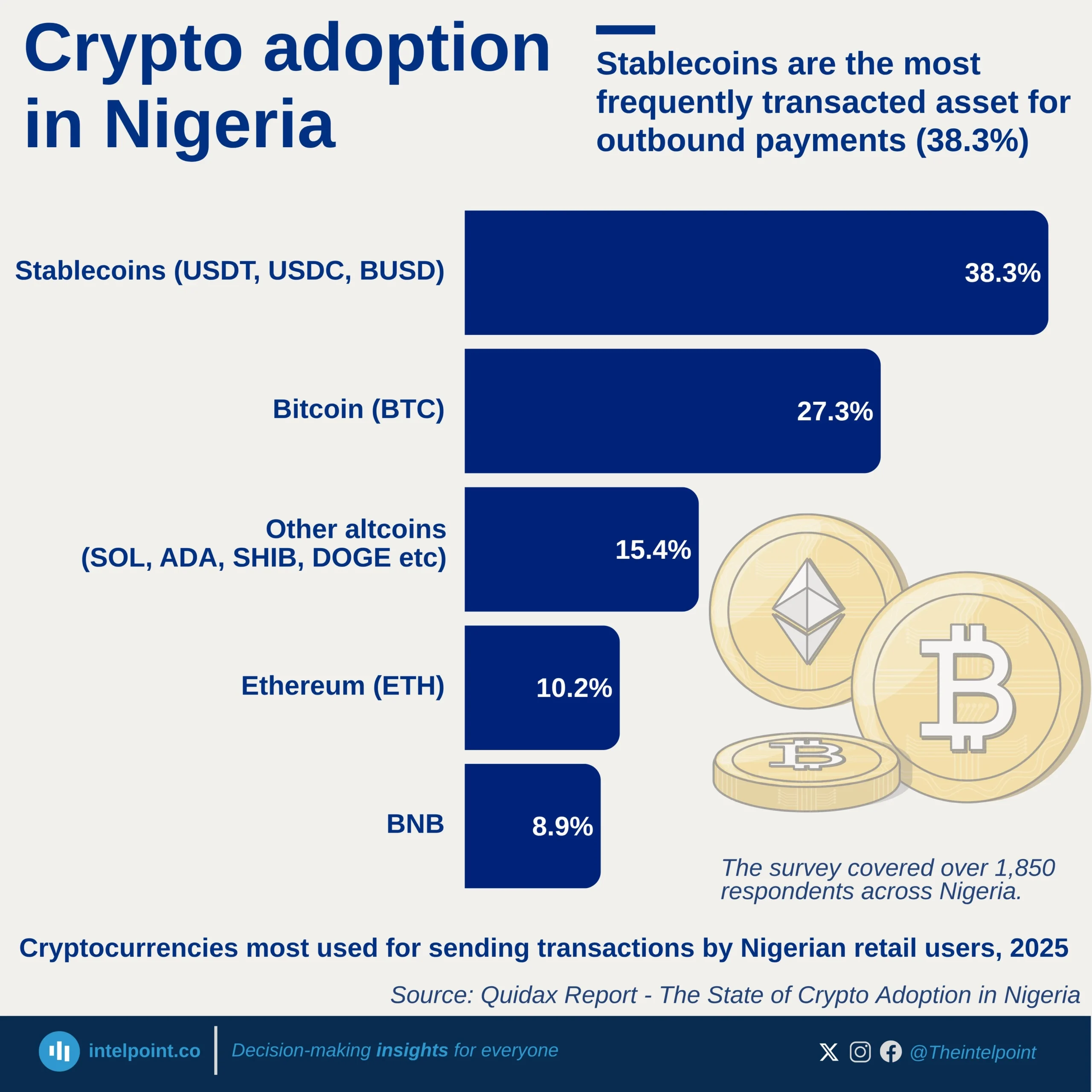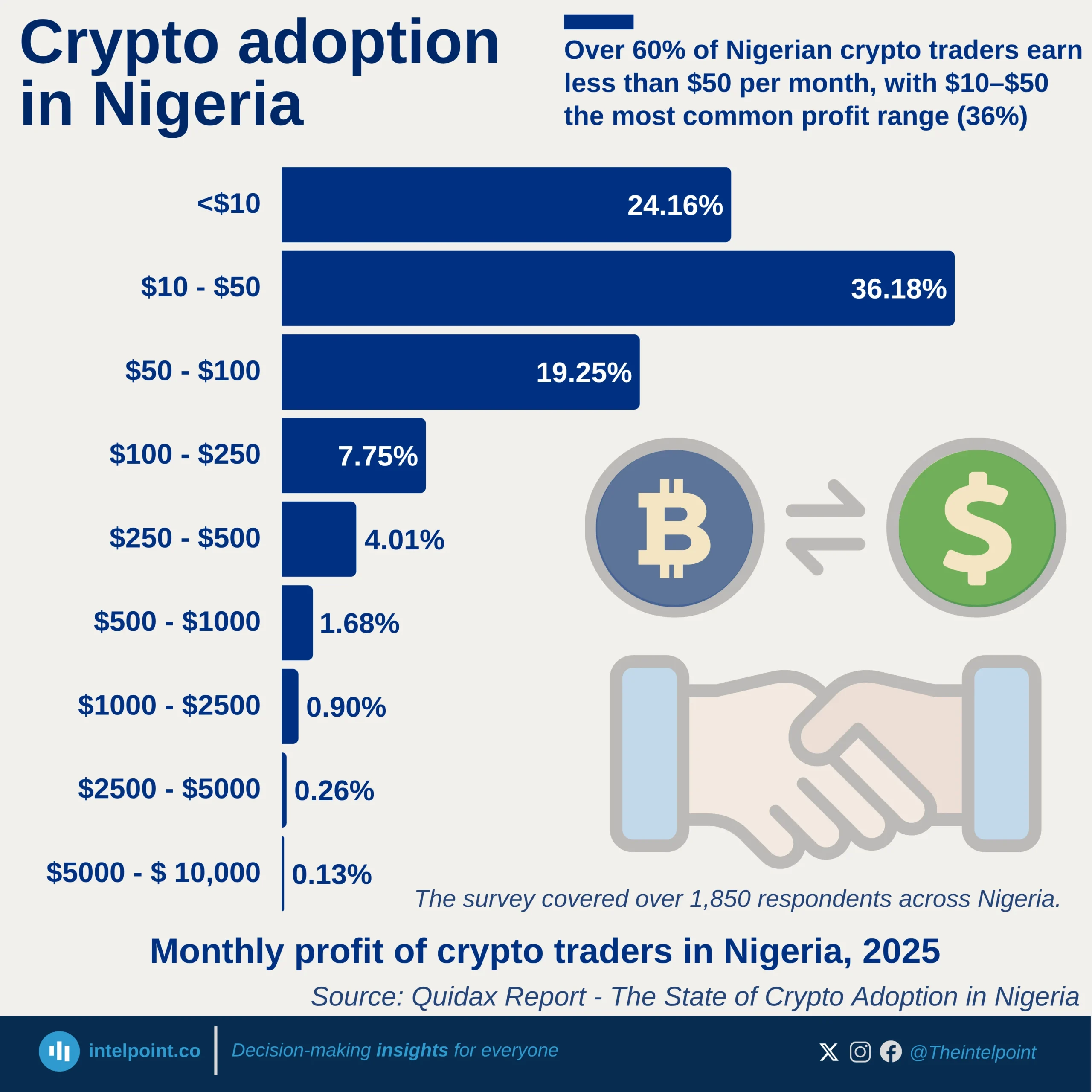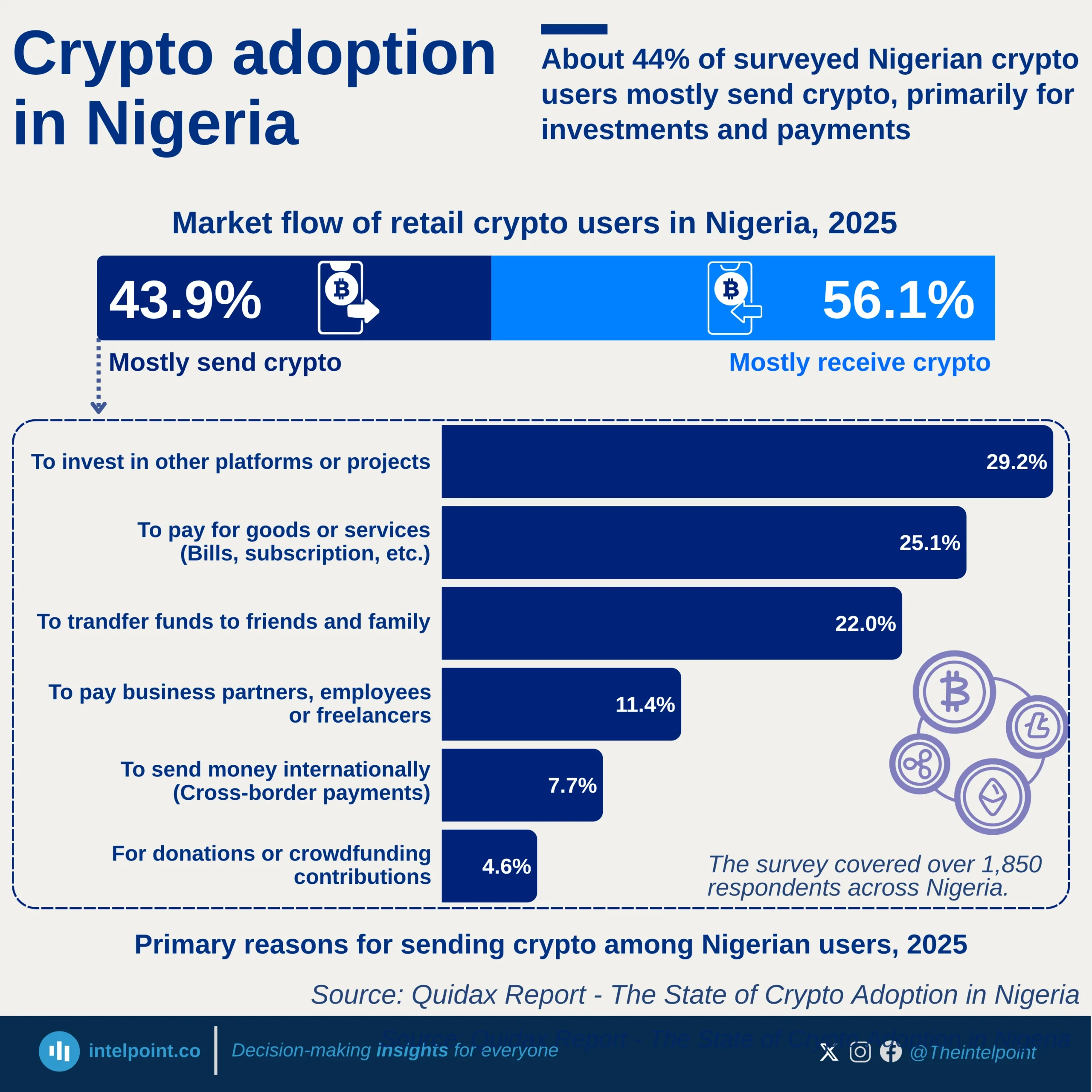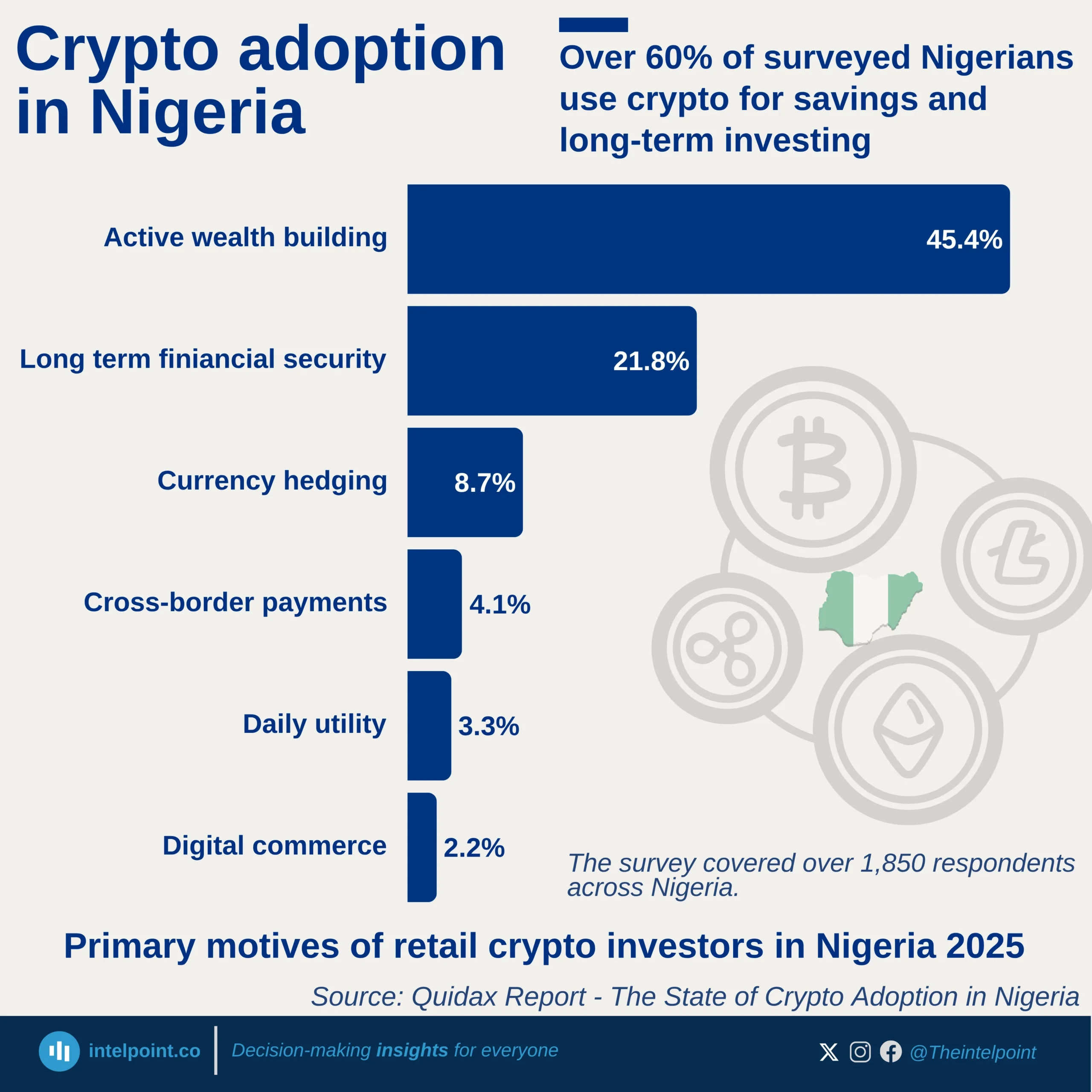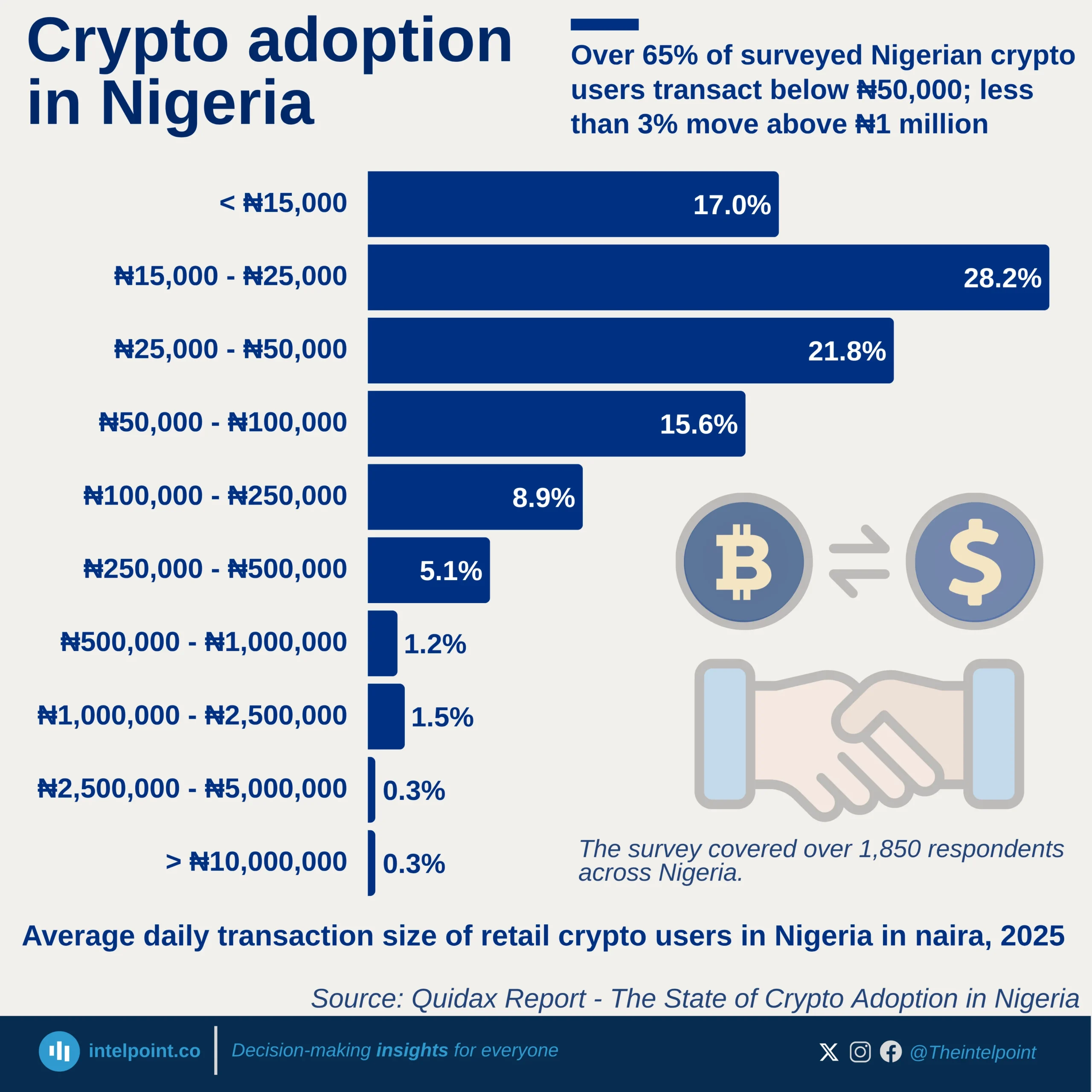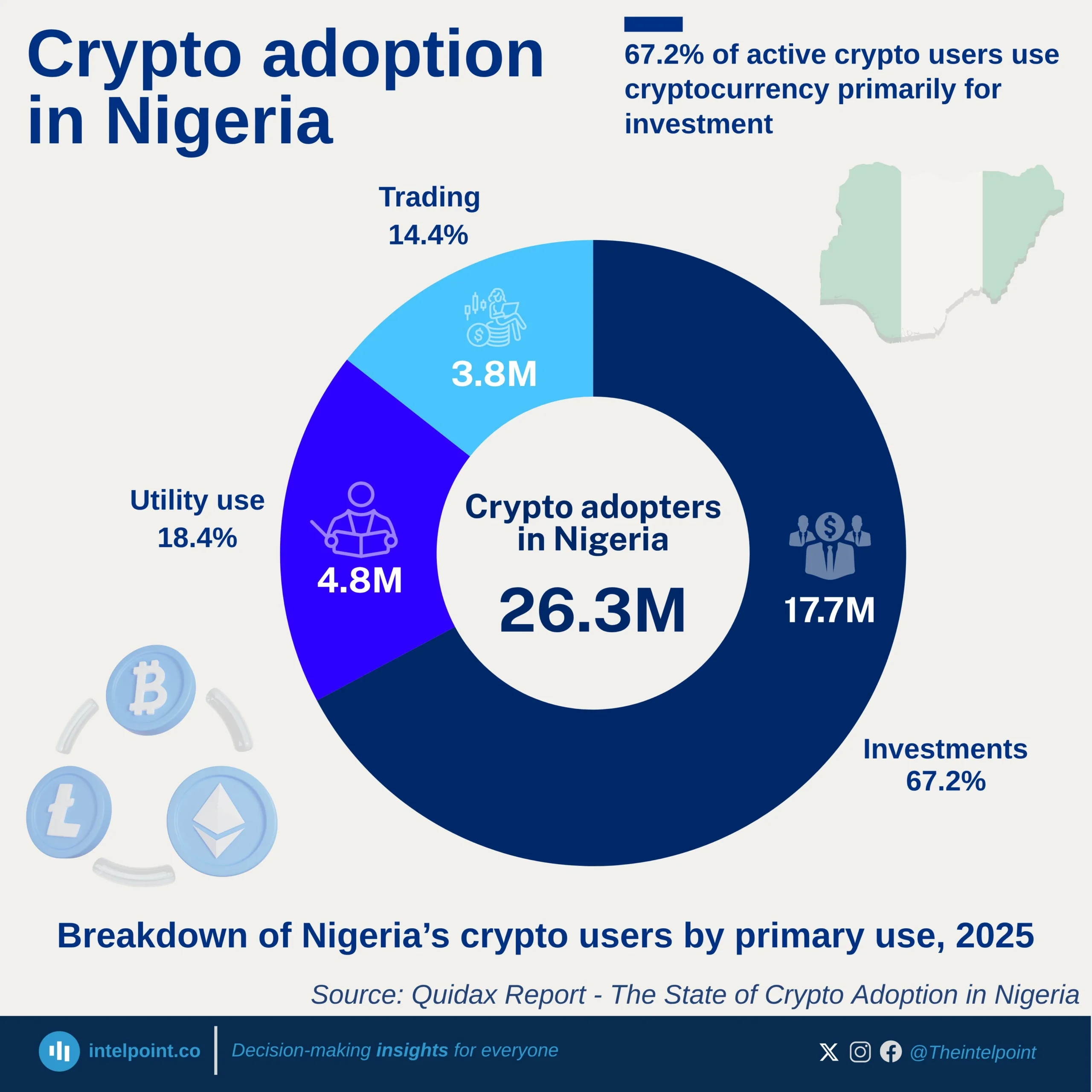Nigeria’s crypto landscape is driven by youth and enterprise. Nearly seven out of ten crypto owners are students or self-employed, signalling a generation using digital assets not just to trade, but to build independence and financial resilience in a challenging economy. The dominance of young, tech-savvy, and entrepreneurial Nigerians highlights how crypto has become both a savings vehicle and a tool for financial inclusion. As traditional employment struggles to absorb Nigeria’s growing youth population, crypto adoption offers a new economic pathway, one powered by digital literacy, global access, and ambition.
